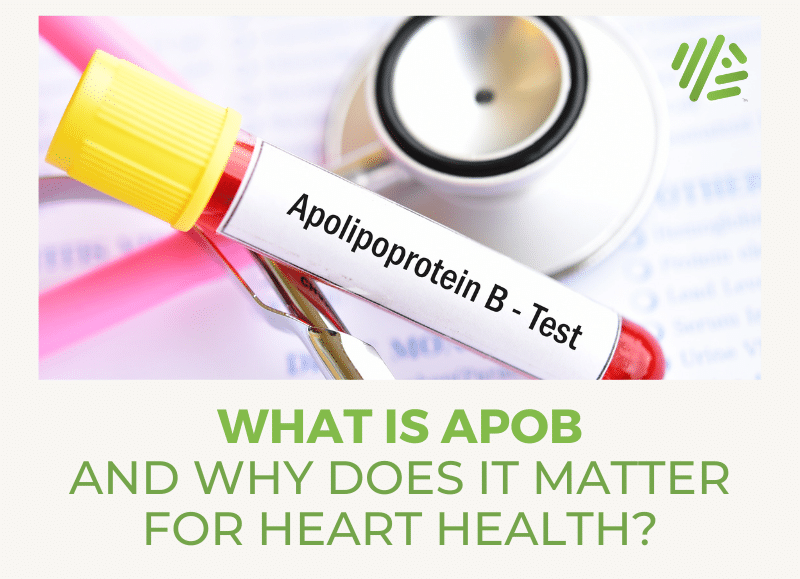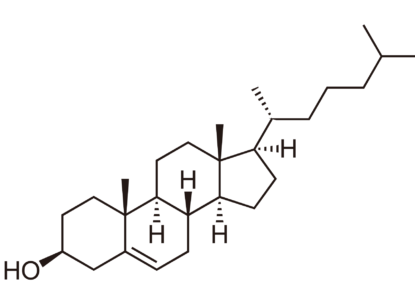ApoB and Heart Heart Health 101: Why ApoB Matters
Article at a Glance
- Scientists abbreviate the protein apolipoprotein B as “ApoB.”
- Because an ApoB test measures not just LDL, but also IDL and VLDL, when physicians measure for ApoB, they are looking at the sum total of your atherogenic lipoproteins.
- Emerging research teaches us that ApoB is one of the primary drivers of heart disease over time. Lower ApoB count usually means a lower risk of heart disease.
Genes Mentioned

Contents
In New York City, yellow taxis shuttle people around the 5 boroughs.
Similarly, in our bodies, lipoproteins shuttle different types of fats around to various parts of the body.
Most of these lipoproteins are composed of proteins known as apolipoprotein B, which is the protein that makes up the shell of particles like LDL and VLDL just as steel makes up the shell of the yellow taxis furiously driving all over the Big Apple.
When a lipoprotein particle containing ApoB gets beneath the cells that line the artery wall, otherwise known as the “subendothelial space,” an immune response is triggered.
This begins the inflammatory process of atherosclerosis.
The immune cells arriving in the artery cause an inflammatory response and the particles get stuck in the arterial wall. This also has the unfortunate effect of enlarging the space where more particles can get caught and stuck.
Different types of apolipoprotein B
The gene that provides the instructions for the body to make the protein is referred to as APOB.
APOB encodes for two forms of apolipoprotein B, namely apolipoprotein B-48 and apolipoprotein B-100.
These are shortened to ApoB-48 and ApoB-100 respectively.
ApoB-48 is a type of protein unique to chylomicrons, a little known lipid carrying particle, primarily found in the small intestine, whose job it is to help the body use fat for energy right after a meal.
ApoB-100 is made in the liver and is the only type of apolipoprotein that makes up low-density lipoproteins (LDL).
There is one ApoB protein for every LDL particle. ApoB helps to maintain the structural integrity of LDL particles, thereby enabling LDL to bind to receptors on the surface of cells.
The difference between ApoB and ApoA
Apolipoproteins in the B class reside on LDL particles, intermediate-density lipoprotein (IDL) particles, and very-low-density lipoprotein (VLDL) particles.
Apolipoproteins in the A-I class are more normally found on high-density lipoprotein (HDL) particles.
Why should you care about ApoB?
Because emerging research teaches us that ApoB is one of the primary drivers of heart disease over time. Lower ApoB count usually means a lower risk of heart disease. 1 2 3
Because an ApoB test measures not just LDL, but also IDL and VLDL, when physicians measure for ApoB, they are looking at the sum total of your atherogenic lipoproteins. As such, APOB is a better metric for gauging hear health than LDL-C alone.
How to test your ApoB level
For some of us, our LDL-C levels map nicely with our ApoB levels. On a standard lipid panel, you’re likely to see results for:
- Total cholesterol (TC)
- Triglycerides (TG)
- High-density lipoprotein cholesterol (HDL-C)
- Low-density lipoprotein cholesterol (LDL-C)
Labs that measure for ApoB, such as Boston Heart Diagnostics and Cleveland Heart Lab use an advanced technology called nuclear magnetic resonance (NMR).
How diet impacts ApoB
The role of diet in ApoB levels is driven in large measure by genetics.
For example, a study we cite often at Gene Food, Retterstol, found massive variability in changes to ApoB levels in subjects placed on a high saturated fat diet.
In some subjects, LDL and ApoB more than doubled, whereas in others, it went up only modestly.
Similarly, this study, which documented increases in ApoB levels as saturated fat moved from 5% to 15% of diet.
Conversely, a high sugar diet may increase ApoB in some people by contributing to insulin resistance, and greater TG and VLDL production.
What about ApoB gene variants?
Mutations in the APOB gene can cause a variety of diseases. These include:
- Hypobetalipoproteinemia
- Normotriglyceridemic
- hypobetalipoproteinemia
These diseases affect plasma cholesterol levels and ApoB levels.
In one study published in 2018, researchers found that APOB rs1042034 “T” allele and rs673548 “G” allele increased the risk of the Ischemic Stroke by about 27-29%. For those with the APOB rs693 “AA-AG” genotype, Ischemic Stroke risk was increased by around 52% compared to those with the more common “GG” genotype.4
In another study, researchers found a significant association between the C allele of rs693 and high familial cholesterol levels. Meanwhile, the dominant T allele appeared to confer a protective effect.5
In an earlier study, carriers of GG genotype of rs676210 had almost a two-fold (1.93 odds ratio) increased risk of myocardial infarct (MI) compared to carriers of AA genotype. In addition, those with the specific haplotype GTTGG (rs676210-rs2854725-rs11676704-rs3791980-rs2678379) had almost a three-fold increased risk (2.82 odds ratio) compared with ATTGA haplotype. 6
The researchers also found a significant association between APOB rs676210 and rs2678379 polymorphisms and plasma levels of ApoB in individuals who hadn’t had an MI. This suggests that even seemingly healthy adults with these APOB polymorphisms may have high ApoB levels and an increased risk of MI. 7
In another study, researchers found that Saudis with familial hypercholesterolemia were more likely to have the rs151009667 polymorphism. 8
The takeaway
In conclusion, ApoB is an important thing to measure if you’re concerned with heart health and longevity. Focusing on LDL-C levels alone can give you a false sense of security about your risk of cardiovascular disease, heart attack, and stroke.
It’s also good to know if you have any SNPs affecting ApoB as these could dramatically increase your risk of cardiovascular problems and other health issues.



